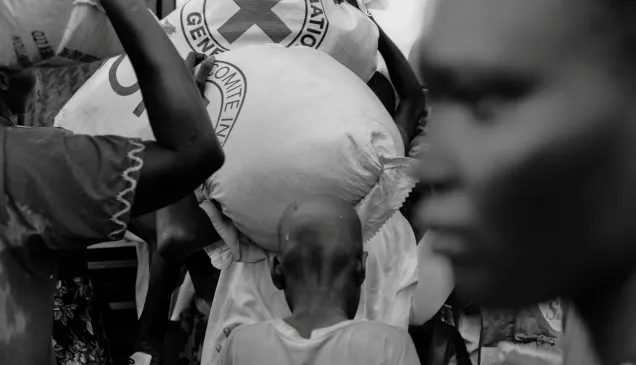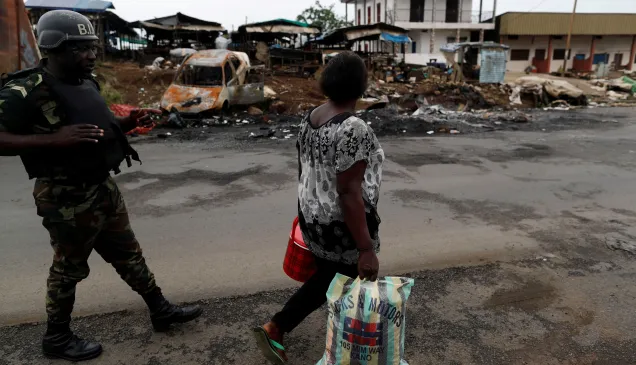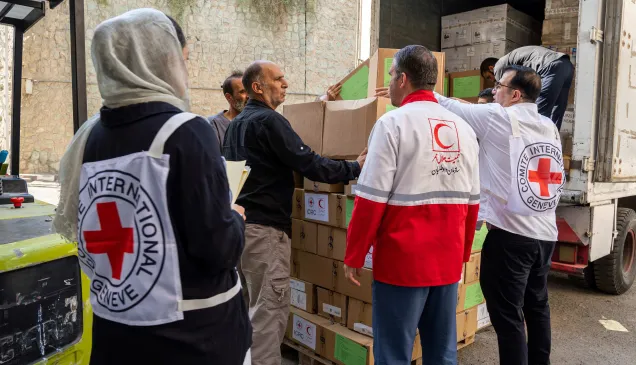The ICRC and the Iran-Iraq war: The ICRC Library digs up the Annual Reports
More than two decades after the end of the 1980-1988 Iran-Iraq War, tens of thousands of people are still listed as “missing” – no-one knows what happened to them.
On 10 October 2014, the ICRC held a meeting between the former belligerents and stressed the organization’s willingness to help both countries in their efforts relating to these missing persons.
The ICRC Library is playing its part in this process, by using the ICRC’s annual reports to highlight the work of the organization during this conflict.
Each year, the ICRC publishes an annual report, in which we explain what we have done over the previous year. These reports include chapters on each country or context where we have worked during the year. The chapters on the Iran-Iraq war from our 1980-1988 reports give an interesting overview of our work in that context. In particular, they report on breaches of the Geneva Conventions by both sides, especially regarding POWs.
1980
On 23 September, shortly after the outbreak of hostilities, the ICRC appealed to both sides, through the intermediary of their permanent Missions in Geneva, to honour their obligations under the four Geneva Conventions of 1949.
1981
The ICRC had to insist that both sides more closely honour their obligations under the Conventions.
1983
The ICRC noted that despite certain genuine difficulties, the Iraqi authorities were still endeavouring to implement the Geneva Conventions, while the leaders of the Islamic Republic of Iran were committing breaches of those same Conventions, forcing the ICRC to suspend its visits to the prisoner-of-war camps.
1984
In view of the grave and repeated breaches of international humanitarian law committed by both parties to the conflict, the ICRC appealed on 13 February to all the States party to the Geneva Conventions. The ICRC deplored the escalation of the methods of combat used by the belligerents, which constituted grave violations of international humanitarian law.
1986
The ICRC was able to resume its activities to help Iraqi prisoners of war in Iran, which had been suspended since October 1984, and continued its work in Iraq for the benefit of Iranian prisoners of war.
1987
An increasing number of acts of indiscriminate violence attracted the attention of the ICRC, as did the use of arms prohibited by international humanitarian law.
1988
Following Iran’s acceptance of UN Resolution 598 on 18 July (Iraq had accepted the resolution in 1987), the ICRC submitted concrete proposals to both parties for the comprehensive repatriation of all prisoners of war but only a few isolated repatriations could be carried out.
What the ICRC did … and what it did not
Despite all the above, the ICRC managed to deliver emergency aid to people in danger, visit thousands of POWs, repatriate hundreds of sick and injured prisoners and transmit millions of Red Cross messages.
One thing we were not able to do, however, was to carry out our tracing activities in a satisfactory manner. This is part of the reason why, a quarter of a century after the cease-fire, the issue of missing persons was on the agenda of this October’s meeting.
Library and research services
The Library and Research Service is a public resource offering over 140,000 documents on international humanitarian law, humanitarian work and ICRC activities. The documents take a range of forms – books, periodicals, videos, photos and CD-ROMs.



